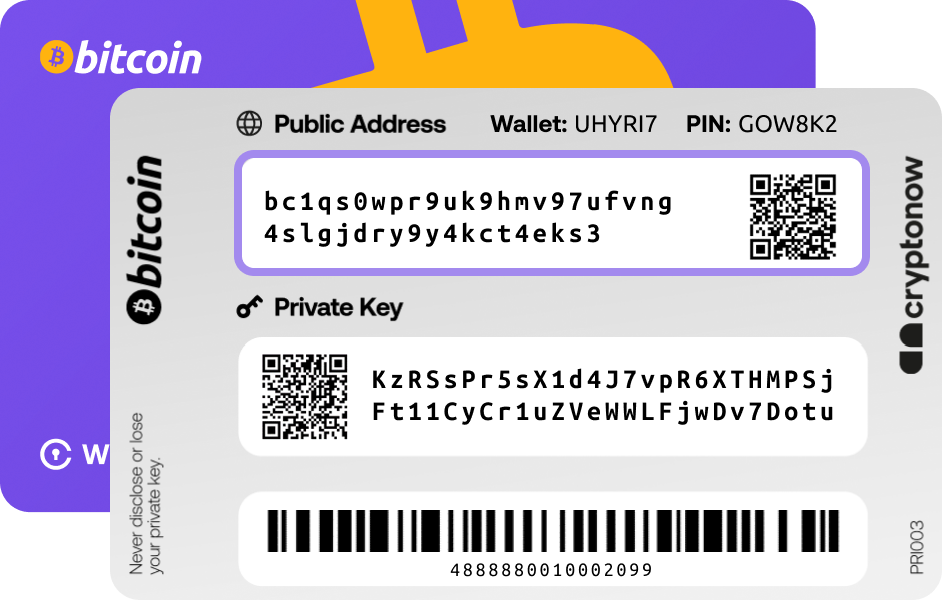Read previous entry: Blockchain 101 \ 2: Terminology
In fact, cryptocurrency wallet or wallet is a tool you use to see your own cryptocurrencies, and interact with them by sending, receiving funds, and tracking balances.
A cryptocurrency wallet is a software that stores private and public keys. If users want to use Bitcoin or any other cryptocurrency, you need a wallet to manage it.
Wallets can be used to manage multiple coins or tokens at once, but most wallets will only support certain cryptocurrencies.
They are like a key to open a blockchain warehouse. Without the key, the warehouse cannot be opened. And without them, there would be no way for you to prove ownership of your digital assets.
How cryptocurrency wallet works
Unlike traditional wallets, cryptocurrencies are not actually stored in any location or exist anywhere in any physical form. All that exists are records of transaction history stored on the blockchain.
When someone sends us Bitcoin or any coin, they are essentially signing over ownership of it to us. To be able to use those coins and unlock them, the private key stored in our wallet must match the public address of the assigned currency. If the public key and private key match, the balance in our wallet increases and the sender’s will decrease accordingly. There is no actual exchange of real physical money. The transaction is only represented by a transaction record on the blockchain and a change in the balance in our wallet.

Figure 1: Public Key - Private Key Crypto Wallet
Types of cryptocurrency wallets
Based on ownership, cryptocurrency wallets can be divided into 2 types:
- Non-custodial wallet/self-custodial wallet: is a type of decentralized wallet, where you own your the private keys of the wallet. You receive a file with the private key (seedphrase) and need to write down a memorable phrase with which you will be able to recover your funds. Having private keys means you have full control over your funds.
- Custodial wallet: like an account, you do not own the private key. Exchange (in almost case) will store and manage the key.
In terms of flexibility of use and security, cryptocurrency wallets can be divided into two other types:
- Hot wallets. We can trade whenever we want via an internet connection.
- Cold wallets. It’s like our bank account, it will automatically receive money when someone sends it to us without needing an internet connection (but if you want to check balance fluctuations, you still need an internet connection, just like internet banking).
Some cryptocurrency wallets being used today:
-
Online: belongs to the hot, custodial wallet type, it operates on a cloud system so it operates 24/24 and can be accessed from any device in any location. Although they are very convenient, online wallets store your private keys by a third party (wallet provider), making them more vulnerable to attacks and theft. However, reputable third parties always maintain very good security and are willing to compensate us. We can store our crypto assets through storage service websites such as: Coinbase, Blockchain.info , in addition we can directly on exchanges such as: Binance, Bitfinex, Kraken, Bittrex, Poloniex, Fiahub.
-
Software Wallet (soft wallet): it is also a hot, non-custodial wallet, a wallet that operates as an App that can be downloaded and installed on a PC, laptop or mobile phone, or extension browser. For this type of wallet, we will directly manage our keys, so if we lose the security key, we will definitely lose our assets.
- Wallets installed on PC/Laptop such as: Daedalus …
- App wallet installed on phone, browser: Yoroi , Metamask…
-
Paper wallet: a form of cold storage, non-custodial wallet that is quite easy to use and very secure. Simply put, it is a piece of paper containing our keys (public and private) in QR code, so we can use it by scanning it for transactions. Some reputable services provided include: Myetherwallet, BitAddress, BitcoinPaperWallet, BitcoinAddressUtility, SafePaperWallet.
-
Hardware Wallet: also a form of cold, non-custodial wallet, it differs from a soft wallet in that the wallet will store the private key on an external device such as a USB. Although it transacts online, the private key is on the device instead of a third party, so it is more secure. However, if we lose or damage the device, the property is also lost. Some prominent hardware wallets include Ledger Nano S, Trezor.io, KeepKey.
